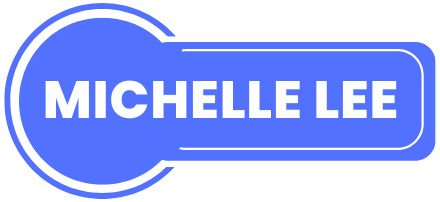When you’re launching a new business, you’re thinking about branding, sales, socials, maybe some “manifesting.” Intellectual property? Probably somewhere near the bottom of your to-do list… if it’s there at all.
But here’s the thing:
IP mistakes don’t just hurt later—they can kill a business before it even starts.
Whether you’re running a startup, launching a brand, or freelancing under a killer name, intellectual property (IP) is your invisible backbone—your logos, your content, your inventions, your identity.
Screw it up early, and you could:
- Get sued
- Lose your brand name
- Be forced to rebrand
- Miss out on serious money
Let’s save you from all that.
Here are the Top 5 IP Mistakes new businesses make—and how to avoid them like a boss.
1. Not Trademarking Their Brand Name Early Enough
The Mistake:
You come up with the perfect brand name. You design the logo. You launch the website. You even buy the hoodie. But… you didn’t check the trademark database.
And someone else already owns it. 💀
Or worse: you start scaling, and they notice.
The Fix:
- Run a trademark search in your country (e.g., USPTO TESS)
- If it’s clear, apply to register it ASAP—especially if you’re building an audience
- Consider getting help from an IP attorney or using platforms like LegalZoom or Trademark Engine
Why It Matters:
Your brand is your business. If you don’t own the rights, you’re building on borrowed ground.
2. Thinking a Domain = IP Ownership
The Mistake:
“I bought the .com! That means I own the name, right?”
NOPE. Owning a domain name or Instagram handle does not give you trademark rights.
Someone else could hold the trademark and legally force you to stop using it—or even take your domain in a legal dispute.
The Fix:
- Separate domain ownership from legal brand protection
- Use the domain to support your brand, but protect the brand via trademark
- Also: check social handles for availability + potential conflicts
Why It Matters:
Online presence ≠ legal protection. If your digital identity isn’t backed by law, it’s vulnerable.
3. Using Copyrighted Content Without Permission
The Mistake:
You grabbed that cool photo off Pinterest for your website. You used that beat you found on YouTube for your product teaser.
It felt harmless. It was just marketing.
But if it’s copyrighted? You’re exposed.
The Fix:
- Only use media you created, licensed, or found in the public domain
- Use royalty-free platforms (e.g., Unsplash, Pexels, Artlist, Epidemic Sound)
- When in doubt, get explicit permission or pay for usage rights
Why It Matters:
Copyright trolls exist. And they make money suing small businesses. Don’t be an easy target.
4. Not Having Clear IP Ownership in Contracts
The Mistake:
You hire a freelancer to design your logo.
A dev builds your app.
A copywriter crafts your website.
Everything’s great—until you realize you don’t legally own what they made.
Yep: unless you have a “work-for-hire” clause, the creator may retain copyright. You paid for the deliverable—not the rights.
The Fix:
- Every creative contract should clearly state: “All rights, including intellectual property, are transferred to [your company] upon payment.”
- Use IP assignment agreements for co-founders, freelancers, and contractors
- Make sure your employee agreements include IP ownership clauses
Why It Matters:
If you don’t own your assets, you can’t license them, sell your company, or protect your brand.
5. Not Protecting Trade Secrets or Proprietary Info
The Mistake:
You casually share your secret formula, launch plan, or app algorithm with partners, vendors, interns… without any NDA or confidentiality agreement.
Then someone launches a suspiciously similar business 3 months later. Oof.
The Fix:
- Use Non-Disclosure Agreements (NDAs) when discussing sensitive info
- Protect access to internal systems, documents, and code
- Label confidential documents clearly
- Limit how and when information is shared
Why It Matters:
Your business’s secret sauce shouldn’t be public recipe material. Protect it or lose it.
BONUS MISTAKE: Not Getting Legal Help Early Enough
It’s tempting to DIY everything. And sure, you can bootstrap the basics.
But the moment you have real traction, investors, or sales—you need legal protection.
Invest a few hundred dollars in a lawyer now, or pay thousands later in court fees and rebranding costs.
Pro tip: There are startup-friendly IP attorneys who get it. Shop around. It’s worth it.
TL;DR – The IP Hit List for New Biz Owners:
| Mistake | What to Do Instead |
|---|---|
| Didn’t trademark | File early, check first |
| Think domain = rights | Trademark > domain |
| Used random content | License or create original |
| No contract IP terms | Use “work-for-hire” clauses |
| Shared secrets freely | Use NDAs + limit access |
Final Words:
You don’t have to be a lawyer to be smart about IP.
But if you don’t think about it early, you might need one later—for damage control.
Your brand, your assets, your content, your creative work—it’s all valuable.
Protect it like it matters. Because it does.




